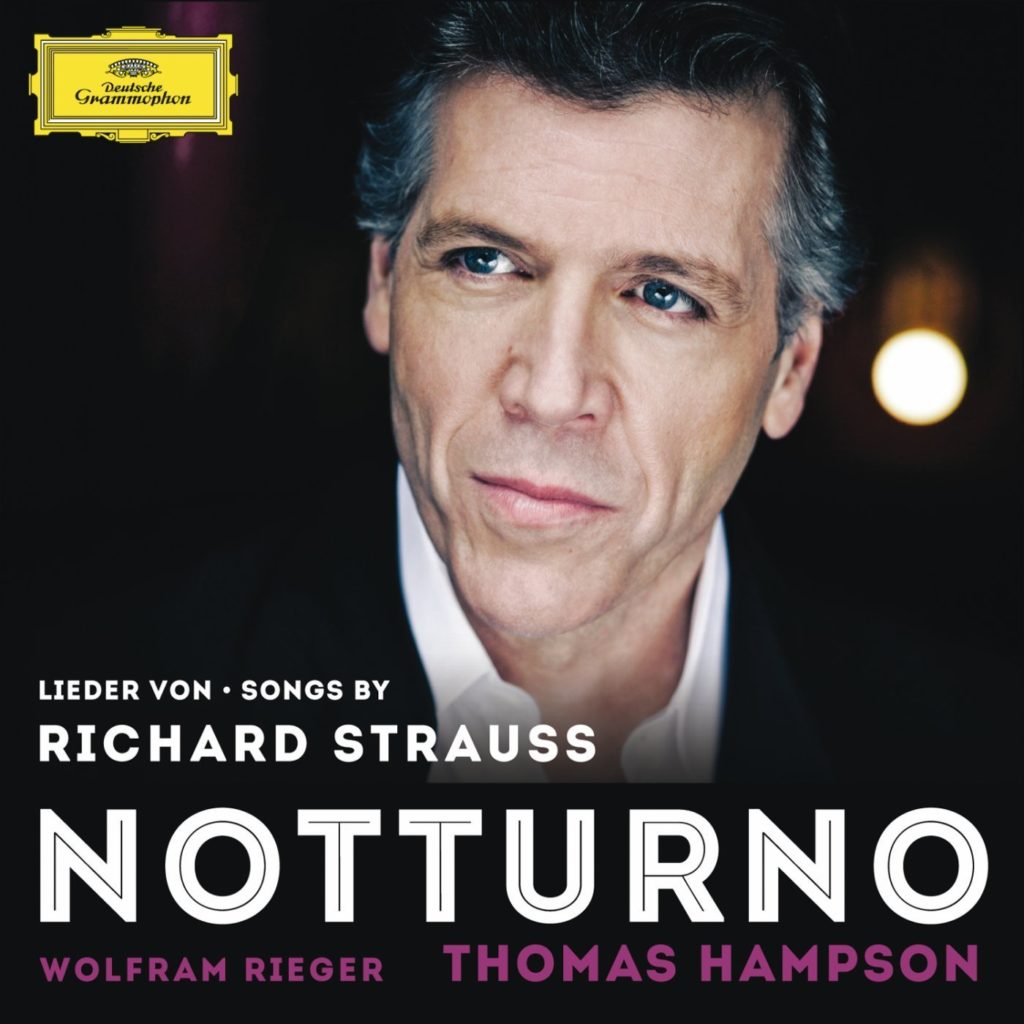Info
With this release Thomas Hampson adds to his his already considerable discography and videography with an expertly-crafted collection of Lieder by Richard Strauss.
Richard Strauss songs provides each of us havens of contemplations as we travel our own paths and discover our own stories. (Thomas Hampson)
In 2014, American baritone Thomas Hampson celebrates Richard Strauss 150th anniversary with several concerts in Europe and North America and a new production of the composer’s Arabella at the Salzburg Easter Festival. This is one of Deutsche Grammophon’s key releases for the Strauss year 2014, which marks the composer s 150th birthday.
Thomas Hampson, baritone
Wolfram Rieger, pianist
Daniel Hope, violinist
Track Listing:
Richard Strauss (1864 – 1949)
01: Zueignung, Op. 10, Nr. 1
02: Die Nacht, Op. 10, Nr. 3
03: Winternacht, Op. 15, Nr. 2
04: Mein Herz ist stumm, Op. 19, Nr. 6
05: Ach weh mir unglückhaftem Mann, Op.21, Nr. 4
06: Ruhe, meine Seele, Op.27, Nr. 1
07: Heimliche Aufforderung, Op.27, Nr. 3
08: Morgen, Op.27, Nr. 4
09: Traum durch die Dämmerung, Op.29.1
10: Sehnsucht, Op.32, Nr. 2
11: Das Rosenband, Op.36, Nr. 1
12: Befreit, Op.39, Nr. 4
13: Notturno, Op.44, Nr. 1
14: Freundliche Vision, Op.48, Nr. 1
15: Die heiligen drei Könige aus Morgenland, Op.56, Nr. 6
16: Vom künftigen Alter, Op.87, Nr. 1
17: Und dann nicht mehr, Op.87, Nr. 3
18: Im Sonnenschein, Op.87, Nr. 4
Press
Notturno review
David J. Baker – Opera News
January 2015 Issue
“Here he combines the all-too-familiar (“Die Nacht” and “Morgen”) with some “gems,” as analyzed by Youens in her intriguing essay in The Cambridge Companion to Richard Strauss (2010). His most noteworthy feat is the resuscitation of an important Strauss song not included in the Cambridge survey, the unusually long (fourteen-minute) “Notturno,”which gives its name to this worthy disc . . . Here, in an arrangement with violin (Daniel Hope) and piano (Wolfram Rieger), he is even more impressive than with the Salzburg orchestra (although the festival’s solo violinist was more vivid). The loss of instrumental variety, such as the eerie woodwinds, seems to free Hampson far more than it hinders him . . . On this recording, as in a good film adaptation of a play, the actor looms larger and comes closer to the audience. His subtlety in the opening and closing lines grasps a mix of dread, longing, fascination and meditation, and the encounters in between are voiced with directed force.
His sensitivity to line, color and interplay with instruments is as strong as ever. He fully exploits the operatic character of this hyper-song . . . Whether on familiar ground with a subtle, sensual “Die Nacht” (1885) or exploring the wistful “Im Sonnenschein” (1935), Hampson proves himself as fine an interpreter of Strauss as we can hear today . . . His warmth is compelling and his ambiguity daunting in the sentimental anticipated bereavement dramatized in “Befreit,” in which he apparently lets emotion overpower vocal control — a risk that pays dividends.”
